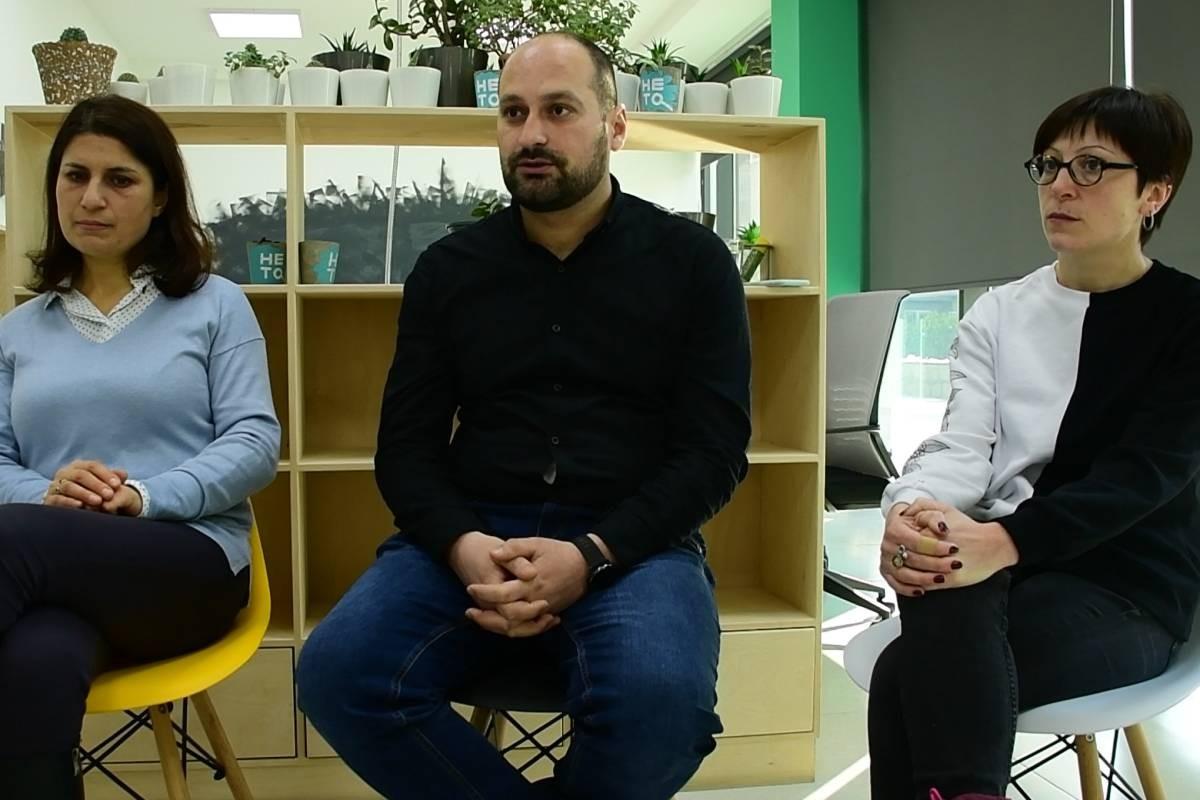
Coronavirus, War: Armenian Tour Guides Pessimistic About 2021 Rebound
Tour guides from Artsakh and Armenia gathered in Stepanakert on September 26 of this year to celebrate the Artsakh capital’s name day.
Toasts calling for peace rang out. Early the next morning, the first shells exploded in the city. One of the shells landed right next to the hotel where the tour guides from Armenia were staying. The guides from Armenia and the Artsakh had organized a training program for the local Artsakh tour guides. It was to end in two days.
"It was like seeing movie clips in my mind. When the first explosions hit, I thought it was fireworks. But I figured it couldn’t be fireworks, not at that hour. I looked out the window and saw my colleague running half-dressed in the yard. The building shook several times. I thought it was an earthquake. Although I served in Artsakh for two years, I didn’t understand what was happening,” says Yasha Solomonyan, President of the Armenian Association of Professional Guides.
After returning to Armenia, Solomonyan applied to the military commissariat to volunteer for the Artsakh front. He was told they’d call. Two days later, after no one called, Solomonyan contacted the Ministry of Foreign Affairs to volunteer as a translator.
The Foreign Ministry suggested that he escort the editor and photographer from the German Bild newspaper to Artsakh. They left for Artsakh on October 3. The other guides, who were also not called by the military commissariat, also volunteered as "fixers". They accompanied foreign journalists from the BBC, Al Jazeera, Libération, Le Figaro, and other media outlets. "We became war guides," says Solomonyan.
Those guides not in Artsakh volunteered to work in rearguard positions.
Coronavirus, war ravage tourism
Tourism was one of the sectors negatively impacted by the coronavirus epidemic in 2020. Tour groups cancelled their scheduled visits to Armenia and Artsakh. The the guides who suffered turned to volunteer work.
Some of the guides hoped that work would rebound by the fall, and some tour groups started to visit Armenia again. Then, war broke out in late September. A group of Swiss tourists who had booked with Solomonyan never canceled and made it to Armenia. In general, however, the war took its toll on the tourism industry.
"It’s when you withdraw into a corner and can see the positive and negative. You start looking for solutions. The creative juices start flowing. New qualities begin to emerge in the struggle for survival," says Solomonyan.
Armenian Association of Professional Guides VP Zaruhie Orbelyan says the negative aspects of 2020 are obvious to everyone.
People in the tourism industry who used to work outside the office, interacting with people, lost their jobs and suffered financially. They began to look for solutions. rbelyan says guides had more free time on their hands than before and used it to get better acquainted with their colleagues. They met and exchanged ideas on a host of issues. Orbelyan says this was the most positive consequence of 2020.
One of volunteer campaigns organized by the guides was to remove garbage from various cultural and historical sites in Armenia. Even before the epidemic, guides often organized such sabbaticals. In the summer of 2020, the association implemented several projects with funding from various international organizations. During one volunteer program, 290 guides collected 200 tons of garbage from tourist sites in Armenia.
When the war in Artsakh broke out, many of the guides volunteered their assistance.
Katar Taslakyan, a member of the association's board, says they collected dry foodstuffs, made protective gear, and located temporary shelter for families displaced from Artsakh.
The guides continue to support the people of Artsakh. Dressing up as Santa Clause, the guides have distributed presents to fifty children from Artsakh.
"Despite these exceedingly difficult conditions, this entire tragedy, there were also many positive things. I’m talking about the people. I’ve met a lot of people and become friends with many of my colleagues. In the past, we only said hello. There is so much love and warmth in this short time. The people around us are the precious treasures we must cherish. In this gloomy uncertainty, they are the lights we need to treasure." says Taslakyan.
The tour guides say they don’t expect a positive turnaround in 2021.
Orbelyan says the epidemic will be the culprit, not the aftermath of the war.
She says the media is obsessed with the virus, to the detriment of any other news.
Many countries have scant information about this war. It was viewed as a conflict between the two countries, and then it passed," Orbelyan says.
Solomonyan finds it hard to predict what tourism will be like this year. He says the industry has undergone many changes because of the global epidemic.
"I hope that the appropriate agencies responsible for tourism will start working on this transformation, at least from now on, although it is already too late, so that we do not fall behind. Yes, something has changed. In a changing world, only those who can adapt stay viable,” says Solomonyan.
Photos and video by Narek Aleksanyan
 Videos
Videos Photos
Photos
Write a comment